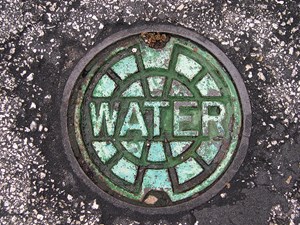Metropolitan Water to increase water supplies for 7 million people with new infrastructure projects
(UI) – Millions of Southern Californians who were required to dramatically reduce their water use last year will have increased access to water supplies in the future under two projects advanced by Metropolitan Water District’s Board of Directors.

The projects separately work to push water from the Colorado River and Diamond Valley Lake, Southern California’s largest reservoir, into communities that currently have limited access to these diverse and stored supplies. These communities, home to nearly 7 million people, heavily depend on water delivered through the State Water Project from Northern California. When SWP supplies were severely limited during the recent state drought, they faced mandatory measures to reduce water use by more than 35%.
Metropolitan’s board approved a $9.8 million contract with J.F. Shea Construction Inc. for the first phase of a project that will help bring additional water from the Colorado River and DVL, in southwest Riverside County, to parts of Los Angeles County and southern Ventura County. The initial phase of the project features the design of two new pump stations along a major Metropolitan pipeline that will allow water from these sources to be delivered to three of the six Metropolitan member agencies that faced mandatory conservation measures: Calleguas Municipal Water District, Las Virgenes Municipal Water District, and the Los Angeles Department of Water and Power. Construction of the project – known as the Sepulveda Feeder Pump Stations Project – would happen in a second phase which is expected to commence in late-2024.
In a separate action, Metropolitan’s board also approved a $15.7 million construction contract with Steve P. Rados, Inc. to construct an intertie between two major Metropolitan pipelines. The project is the second in a suite of four projects that together will re-engineer Metropolitan’s system and allow water to be delivered from DVL – and potentially the Colorado River – to the San Gabriel Valley and Inland Empire. The suite of projects collectively push stored water uphill to the Rialto Pipeline, which delivers water to the Inland Empire Utilities Agency, Three Valleys Municipal Water District and Upper San Gabriel Valley Municipal Water District – the other three Metropolitan member agencies that faced mandatory conservation. Construction on the first of the four projects began earlier this year.
The Sepulveda Feeder project is the first time Metropolitan is using the progressive design-build method for a project since the state legislature last year granted the agency the ability to use such alternative methods to expedite completion of construction projects.
Related News
From Archive

- Glenfarne Alaska LNG targets late-2026 construction start for 807-mile pipeline project
- U.S. water reuse boom to fuel $47 billion in infrastructure spending through 2035
- $2.3 billion approved to construct 236-mile Texas-to-Gulf gas pipeline
- Major water pipe break in Puerto Rico hits over 165,000 customers
- Potomac River Tunnel project enters construction phase beneath Washington, D.C.
- Pennsylvania American Water launches interactive map to identify, replace lead water service lines
- Trump's tariffs drive $33 million cost increase for Cincinnati sewer project
- Utah city launches historic $70 million tunnel project using box jacking under active rail line
- Tulsa residents warned after sewer lines damaged by boring work
- Fatal trench collapse halts sewer construction in Massachusetts; two workers hospitalized



Comments